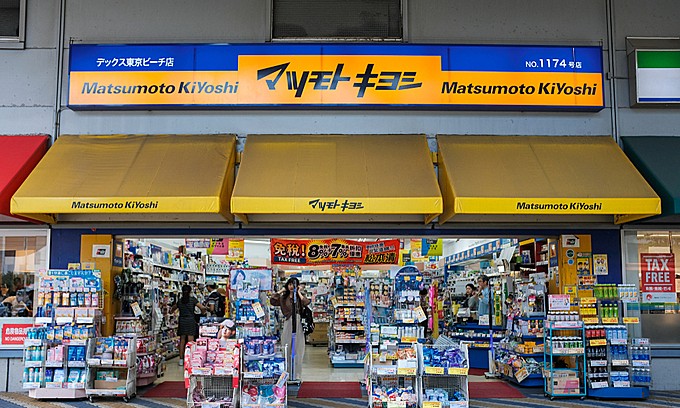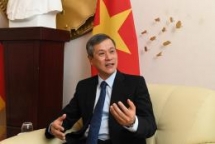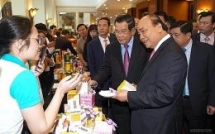Japanese group joins local partner to open drugstores in Vietnam
| Where to find the key to successfully mixing family with business | |
| Vietnam has a robust economy with an attractive business environment: Diplomat | |
| Expanding Vietnamese business in Cambodia |
 |
| A Matsumoto Kiyoshi drugstore in Tokyo, Japan. Photo by Shutterstock/Terence Toh Chin Eng. |
The joint venture, named Matsumoto Kiyoshi Vietnam JSC, will open a chain of drugstores (pharmaceutical drugs, cosmetics, toiletries) with the trademark "MatsuKiyo" in Vietnam.
The Japanese drugstore giant has not disclosed the location and timing of a first store opening, Vietnam News Agency reported.
The joint venture will be capitalized at VND31.5 billion ($1.36 million), and will be 51 percent owned by Matsumoto Kiyoshi, 48.87 percent by Ho Chi Minh City-based Lotus Food Group, and 0.13 percent by Le Van May, president and CEO of Lotus Food, according to Matsumoto Kiyoshi's recent statement.
Under the joint venture agreement, which Matsumoto Kiyoshi said is expected to be signed later this month, Lotus Food’s Le Van May will be chairman of Matsumoto Kiyoshi Vietnam, and the role of CEO will be filled by someone from the Tokyo-based firm.
The two sides had signed a basic agreement to this effect in July.
Matsumotokiyoshi has been pursuing its overseas expansion in recent years. It had 33 stores in Thailand and three in Taiwan as of the end of June, and plans to expand to Hong Kong.
"Vietnam is an emerging market, so there's plenty of room to open new stores," a spokesperson for the company told Nikkei Asian Review in July.
Vietnam is among 17 countries in the so-called "pharmerging" markets, a group of countries that are expected to be the pillars of the global pharma industry, according to U.S. information technology firm IMS Health. Its drug market is expected sustain a 10 percent annual growth for the next five years.
The industry grew 16 percent a year in 2015-2018, with sales currently topping $10 billion, according to a report by global research firm Business Monitor International.
The country still imports over half of its drug needs, especially patented drugs. In the first 10 months of this year its imports were worth $2.55 billion, up 111 percent year-on-year, the General Statistics Offic reported.



